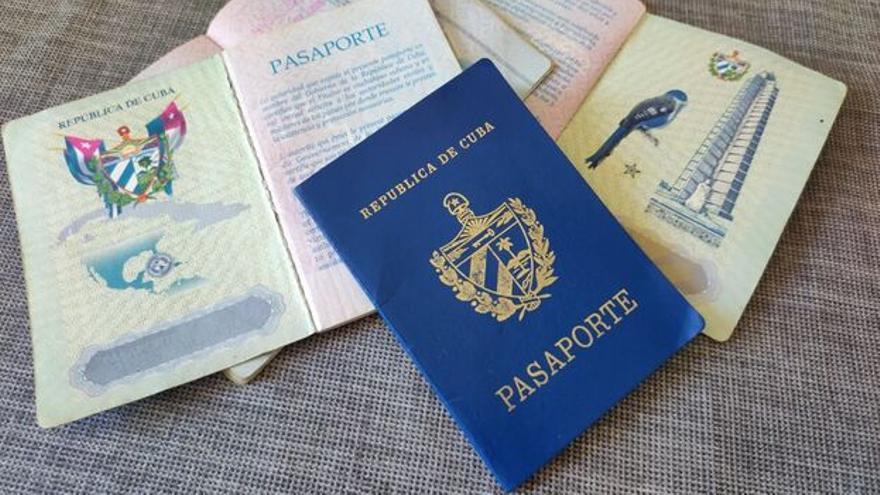
![]() 14ymedio, Havana, 18 August 2023 — The United States will reissue B2 visas, valid for five years, which allow Cubans to travel to the US as tourists, according to three official Washington sources speaking to journalist Mario J. Pentón from América Noticias. However, these long-term permits must be granted at third-country offices, since the White House does not foresee, for the moment, their processing in Havana.
14ymedio, Havana, 18 August 2023 — The United States will reissue B2 visas, valid for five years, which allow Cubans to travel to the US as tourists, according to three official Washington sources speaking to journalist Mario J. Pentón from América Noticias. However, these long-term permits must be granted at third-country offices, since the White House does not foresee, for the moment, their processing in Havana.
This category of visa allows entry into the country for people who intend to make family visits, receive medical treatments, go to tourist places or go shopping. However, applicants must prove that they are not possible migrants and document their roots on the Island. Once this document is obtained, travelers will be able to enter several countries in Latin America and the Caribbean without the need for a visa.
According to Pentón, his contacts asked to remain anonymous because the U.S. Government will not make an official statement until the end of August.
The possible restart of five-year tourism visas for Cubans is good news for thousands of residents on the Island who have Spanish nationality and who, after the inclusion of Cuba in the list of countries that support terrorism, have seen their entry into the United States limited by the restrictions imposed on those who enter or live in Cuban territory, to benefit from the ESTA visa exemption program.
The “mules” have also welcomed the news. With such a visa, Cubans have doors open to them, without having to obtain a visa for Panama, Costa Rica, El Salvador, the Dominican Republic and Mexico, all countries in the region that are the closest market for the purchase of goods to import and resell on the Island.
In 2019, the U.S. Embassy in Havana suspended the issuance of five-year visas and replaced them with three-month and single-entry permits as a sign of “reciprocity” to the Island, which offers similar conditions to U.S. travelers. During Donald Trump’s term, and with the COVID-19 pandemic in full swing, the Embassy limited its functions.
According to figures issued by the U.S. State Department, in 2022 barely 3,000 visas were delivered to Cubans, while from 2012 to 2014, in full “thaw” between Washington and Havana, the figures reached 40,000.
Joe Biden’s policies, for their part, have followed the line of fellow Democrat Barack Obama and are committed to opening legal migratory routes that reduce the waves of travelers who arrive daily at the Mexico-US border.
On Thursday, the U.S. Government announced the reopening of an Embassy office in Havana to process applications for family reunification visas and requests for political asylum, a service it had not provided for five years.
The Secretary of the Department of Homeland Security, Alejandro Mayorkas, pointed out that the main objectives are “to reduce the number of irregular crossings” at the U.S. border, to leave human traffickers without resources and “to simplify access to legal, safe and orderly paths for those seeking humanitarian relief” in the United States.
The office will also provide other services, such as the processing of refugee cases and the collection of biometric data for U visa applicants, for victims of criminal acts.
Translated by Regina Anavy
____________
COLLABORATE WITH OUR WORK: The 14ymedio team is committed to practicing serious journalism that reflects Cuba’s reality in all its depth. Thank you for joining us on this long journey. We invite you to continue supporting us by becoming a member of 14ymedio now. Together we can continue transforming journalism in Cuba.
